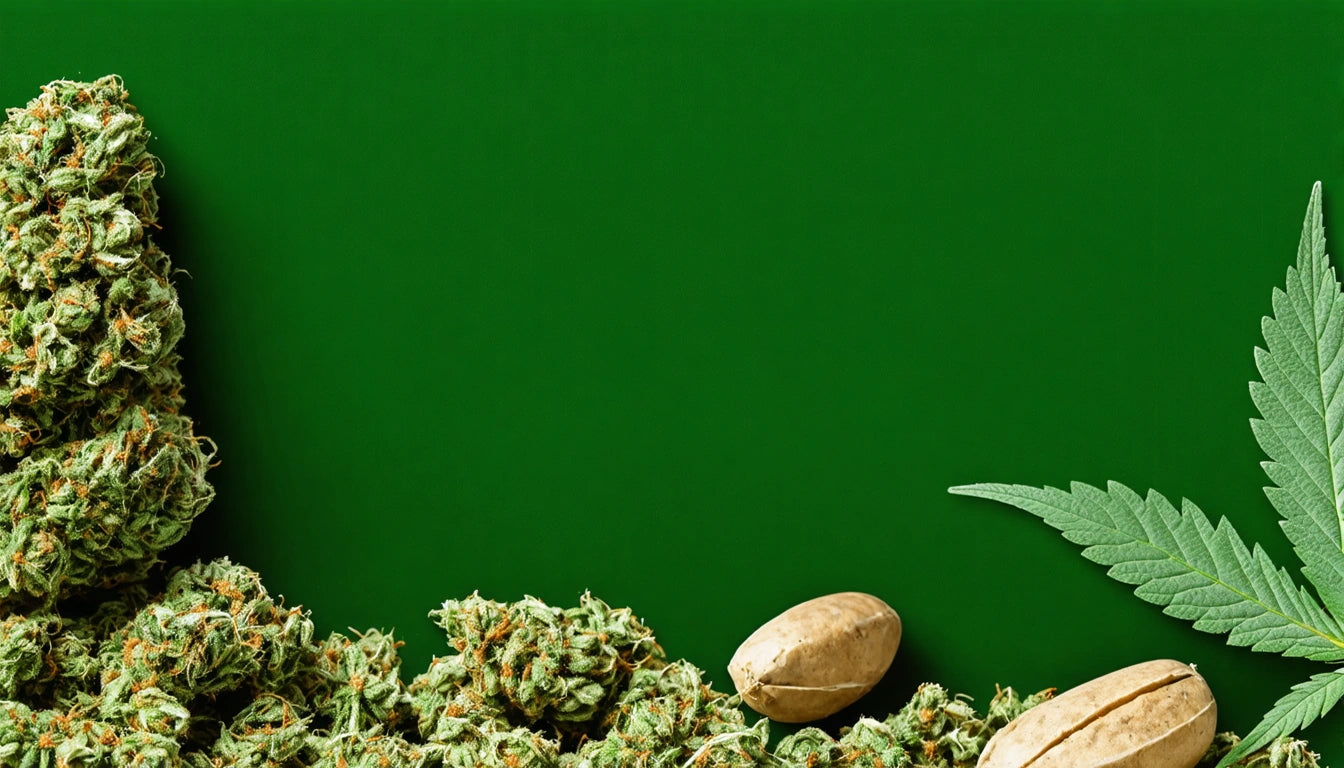- Understanding Medical Marijuana Card Reciprocity
- States That Accept Out-of-State Medical Cards
- States With Limited or No Reciprocity
- Felon Eligibility for Medical Marijuana Cards
- Mississippi and Arkansas Specific Policies
- Navigating the Application Process
- Future of Medical Marijuana Reciprocity and Access
Navigating Medical Marijuana Card Eligibility Across States: Out-of-State Acceptance and Felon Access
Medical marijuana programs continue to evolve across the United States, creating a complex landscape of regulations that vary significantly from state to state. Two questions frequently arise for patients: which states honor out-of-state medical marijuana cards, and can individuals with felony convictions obtain medical cards in states like Mississippi and Arkansas?
Understanding Medical Marijuana Card Reciprocity
Reciprocity refers to the practice of one state recognizing and honoring another state's medical marijuana card. This concept is crucial for patients who travel or relocate, as it determines whether they can legally purchase and possess medical cannabis outside their home state.
According to research on medical marijuana card usage across state lines, reciprocity policies fall into several categories:
- Full reciprocity: States that accept all valid out-of-state medical cards
- Limited reciprocity: States that accept cards from specific states or under certain conditions
- Visitor applications: States that require out-of-state patients to apply for a temporary card
- No reciprocity: States that only recognize their own medical marijuana programs
States That Accept Out-of-State Medical Cards
For patients wondering what states allow out-of-state medical cards, the following states currently offer some form of reciprocity:
- Arizona: Recognizes out-of-state cards but doesn't allow purchases at dispensaries
- Arkansas: Accepts out-of-state cards with temporary visitor certification
- Hawaii: Offers out-of-state registration for visitors
- Maine: Honors valid out-of-state medical cards
- Michigan: Accepts out-of-state medical cards
- Nevada: Recognizes out-of-state cards with valid ID
- New Hampshire: Honors out-of-state cards for possession only
- Oklahoma: Offers temporary licenses for out-of-state cardholders
- Rhode Island: Recognizes out-of-state medical cards
- Utah: Offers limited recognition with temporary cards
- Washington DC: Accepts cards from states with equivalent programs
This list changes as legislation evolves, so patients should verify current laws before traveling. For example, Florida's medical marijuana regulations are frequently updated and may affect reciprocity policies.
States With Limited or No Reciprocity
Several states with medical marijuana programs do not currently recognize out-of-state cards, including:
- California
- Colorado
- Connecticut
- Illinois
- Maryland
- Massachusetts
- Minnesota
- New Jersey
- New York
- Oregon
- Pennsylvania
- Vermont
- Washington
In these states, out-of-state patients may need to explore recreational cannabis options if available or consider applying for an in-state medical card if staying long-term. For instance, patients can learn about obtaining a medical card in Illinois if they become residents.
Felon Eligibility for Medical Marijuana Cards
The question of whether individuals with felony convictions can obtain medical marijuana cards is particularly nuanced and varies by state. Felony restrictions typically fall into these categories:
- No restrictions: Felony convictions do not affect eligibility
- Drug-related restrictions: Only drug-related felonies impact eligibility
- Time-based restrictions: Felonies beyond a certain timeframe don't affect eligibility
- Complete restrictions: Any felony conviction disqualifies applicants
For patients seeking secure storage for their medical cannabis, high-quality storage solutions like mylar bags can help maintain compliance with possession limits and storage regulations, which is especially important for those with legal considerations.
Mississippi and Arkansas Specific Policies
Can a Felon Get a Medical Card in Mississippi?
Mississippi's medical marijuana program, established more recently than many others, does have some restrictions regarding felony convictions. Currently, individuals with certain felony convictions may be disqualified from obtaining a medical marijuana card in Mississippi, particularly if the conviction involved:
- Violent crimes
- Drug trafficking offenses
- Felonies committed within the past five years
However, not all felony convictions result in automatic disqualification. The Mississippi Department of Health evaluates applications on a case-by-case basis, considering factors such as the nature of the offense, time elapsed since conviction, and evidence of rehabilitation.
Can a Felon Get a Medical Card in Arkansas?
In Arkansas, the medical marijuana program's approach to felony convictions is somewhat more defined. According to current regulations:
- Individuals with felony convictions can generally apply for a medical marijuana card as patients
- However, felony convictions do disqualify individuals from serving as designated caregivers
- Drug-related felonies may receive additional scrutiny during the application process
Arkansas focuses more on restricting individuals with felonies from working in the cannabis industry rather than from accessing medical marijuana as patients. This approach recognizes the therapeutic needs of individuals regardless of their criminal history.
Navigating the Application Process
For individuals with felony records seeking to obtain a medical marijuana card, the following steps can help navigate the process:
- Research state-specific regulations regarding felony convictions
- Obtain certified court documents related to any convictions
- Consult with a legal professional familiar with cannabis laws
- Prepare documentation of qualifying medical conditions
- Consider timing applications based on when convictions may no longer affect eligibility
The application process varies by state, with some requiring in-person evaluations and others allowing telemedicine appointments as detailed in state-by-state guides.
Future of Medical Marijuana Reciprocity and Access
As medical marijuana programs mature nationwide, several trends are emerging regarding reciprocity and felony restrictions:
- More states are considering implementing reciprocity agreements
- Felony restrictions are gradually being relaxed, particularly for non-violent offenses
- Interstate compacts similar to driver's license agreements may eventually standardize reciprocity
- Expungement programs for cannabis-related convictions are expanding
These developments suggest a gradual movement toward greater accessibility and standardization across state lines. For the most current information on qualifying for medical marijuana programs, patients should consult resources outlining conditions and requirements for obtaining a medical card.
As regulations continue to evolve, patients with felony records and those who travel between states will likely see improved access to medical cannabis programs, reflecting growing recognition of cannabis as a legitimate medical treatment regardless of state boundaries or past convictions.











Leave a comment
All comments are moderated before being published.
This site is protected by hCaptcha and the hCaptcha Privacy Policy and Terms of Service apply.